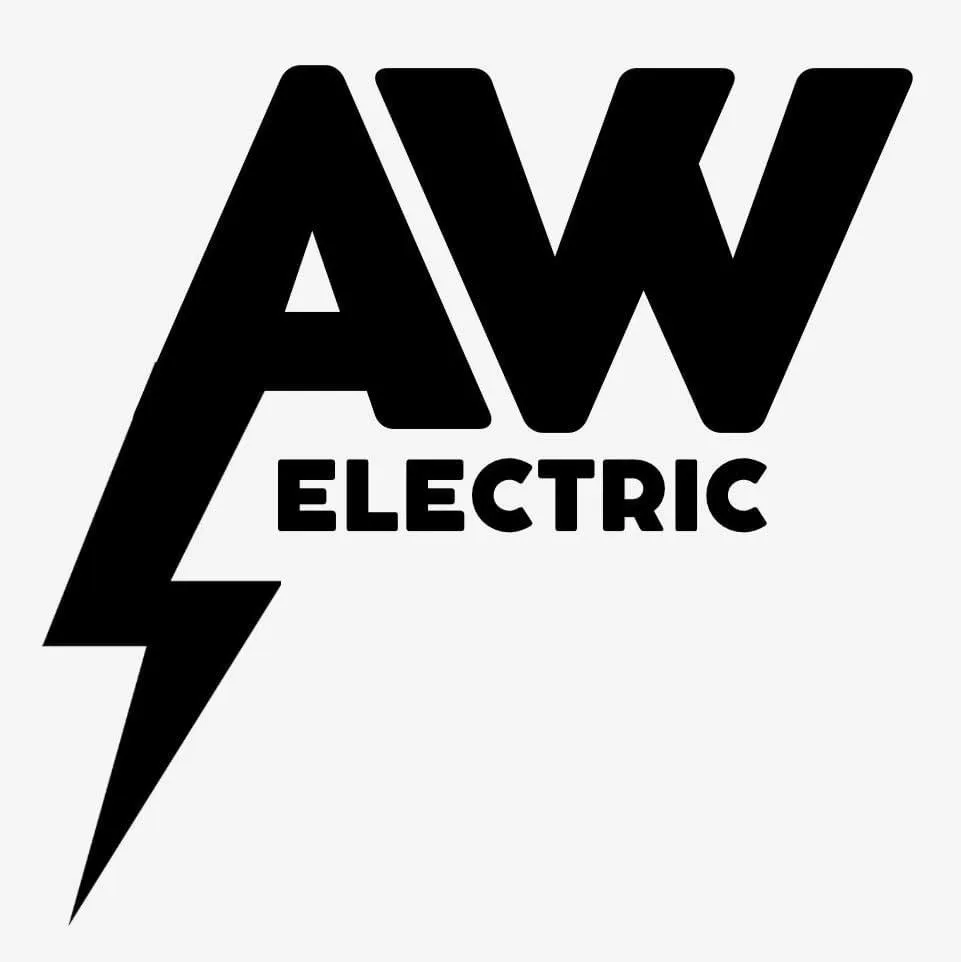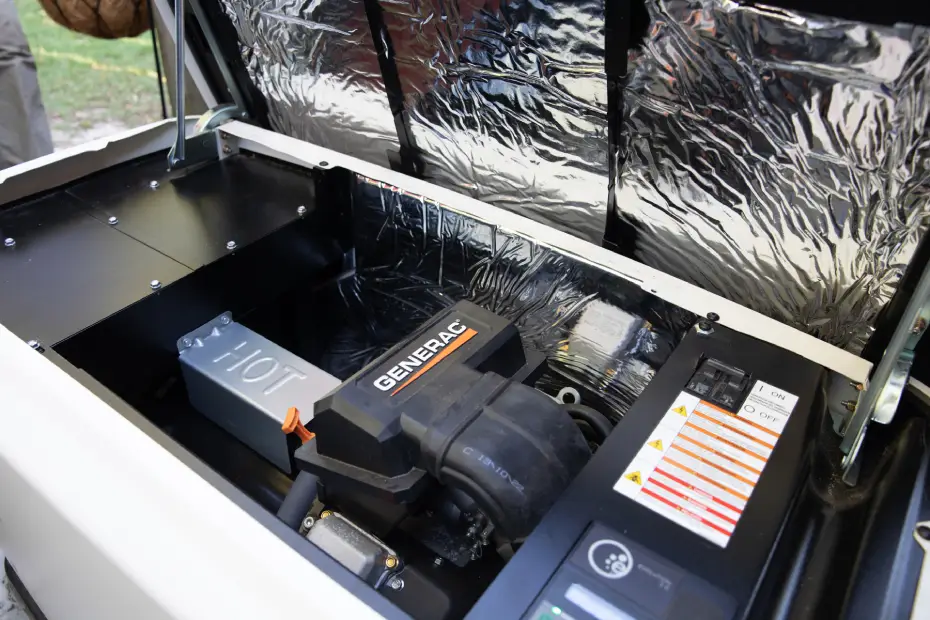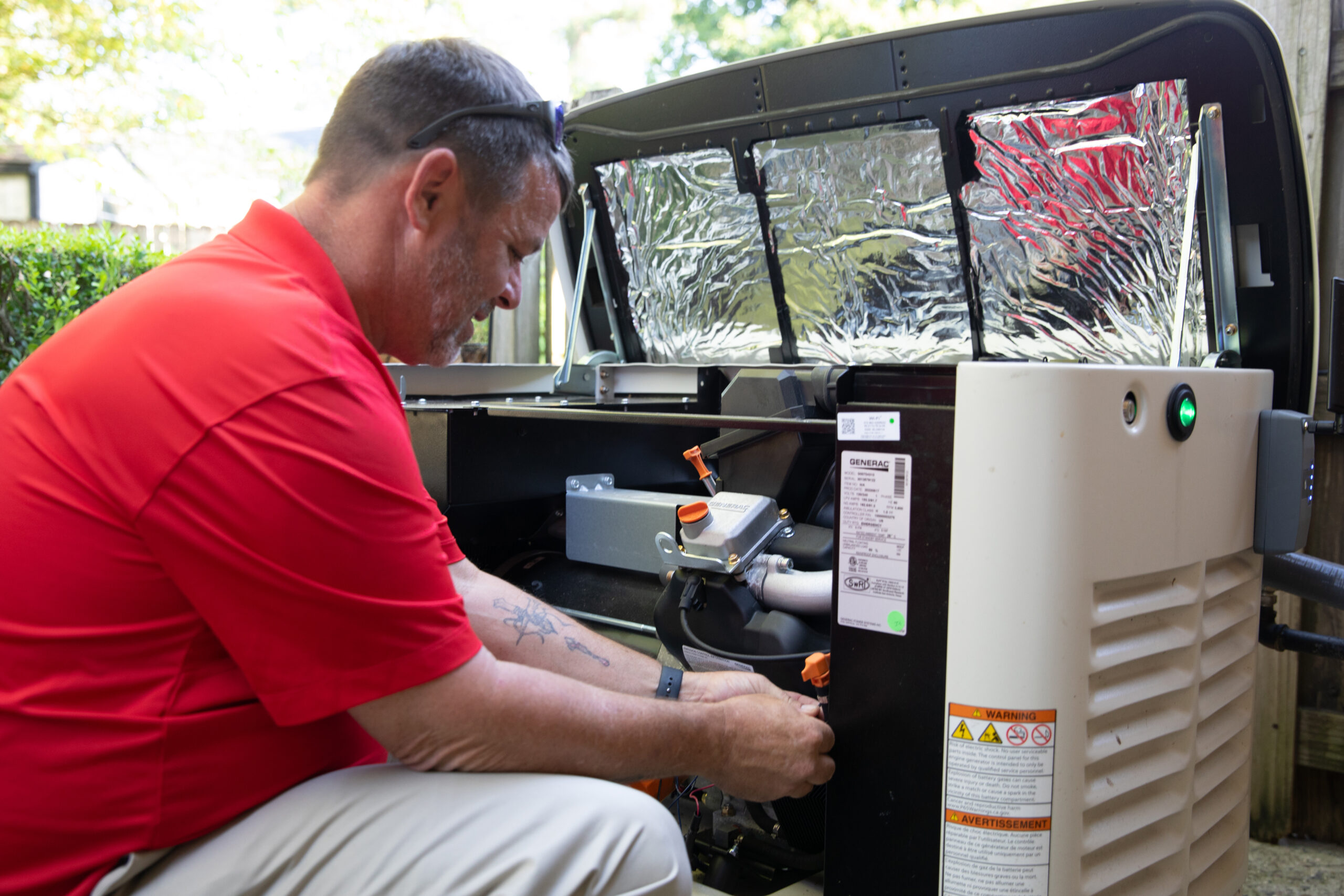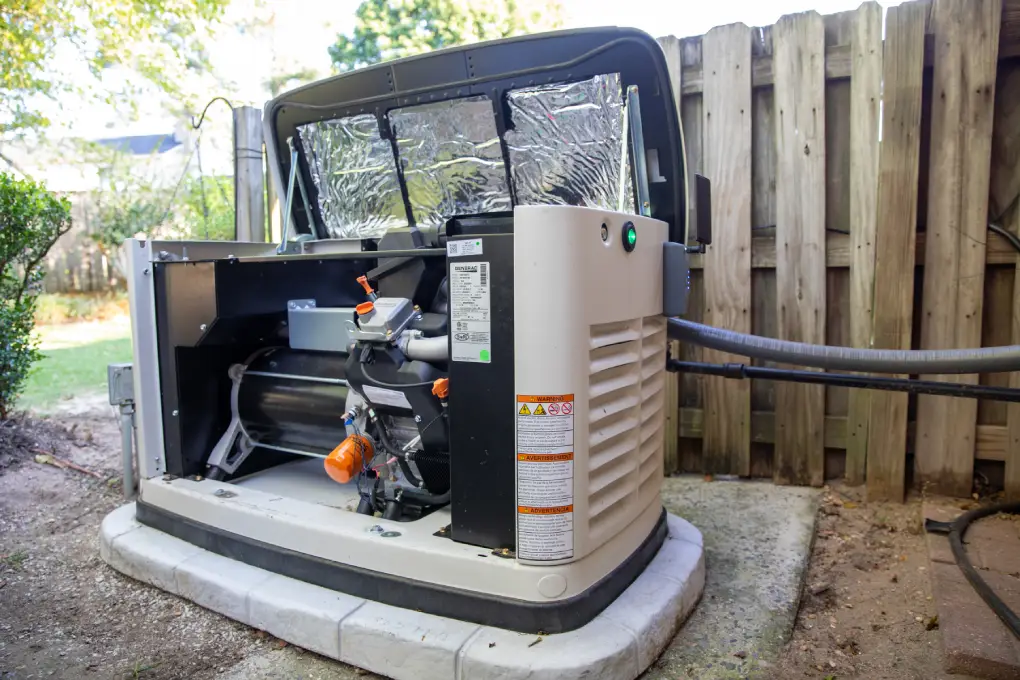Electrical systems are the backbone of any business, ensuring smooth operations, safety, and efficiency. Among the professionals responsible for maintaining these systems are commercial electricians. But what exactly is a commercial electrician, and what do they do?
Understanding Commercial Electricians
Definition of a Commercial Electrician
A commercial electrician in Augusta is a trained professional who installs, repairs and maintains electrical systems in commercial buildings such as offices, retail stores, warehouses, and restaurants. Unlike residential electricians who focus on homes, commercial electricians work with more complex electrical systems designed to power larger spaces with higher energy demands.
These professionals ensure that electrical wiring, lighting, power outlets, and other systems meet local safety codes and industry regulations, keeping businesses operational and compliant.
How They Differ from Residential and Industrial Electricians
Although all electricians work with electrical systems, their areas of expertise vary:
- Residential Electricians: Specialize in electrical systems in homes, handling installations, repairs, and upgrades for lighting, outlets, and circuit breakers.
- Commercial Electricians: Focus on electrical systems in business settings, dealing with larger loads, advanced wiring, and commercial-grade equipment.
- Industrial Electricians: Work in factories, plants, and manufacturing facilities, maintaining heavy-duty machinery, high-voltage systems, and specialized electrical components.
Commercial electric services bridge the gap between residential services and industrial work, ensuring safe and efficient electrical systems in business environments.
Key Responsibilities of a Commercial Electrician
Electrical Installations in Commercial Buildings
Commercial electrical services handle new electrical installations in office buildings, retail spaces, and industrial facilities. This includes:
- Installing wiring systems for power distribution
- Setting up lighting solutions, including LED systems and emergency lighting
- Connecting electrical panels and circuit breakers
- Installing HVAC and security systems that rely on electrical connections
Repair and Maintenance of Electrical Systems
Routine maintenance and repairs are essential for keeping commercial properties operational. Commercial electricians:
- Diagnose and fix faulty wiring and electrical failures
- Replace outdated or malfunctioning circuit breakers and fuses
- Maintain backup power systems, including generators
- Upgrade electrical panels to meet increasing power demands
Compliance with Safety Codes and Regulations
Electrical systems must meet strict safety standards to prevent fire hazards, electrical shocks, and operational failures. Commercial electricians ensure compliance with:
- National Electrical Code (NEC) standards
- Local building codes and regulations
- Occupational Safety and Health Administration (OSHA) guidelines
By staying updated with safety laws, they help businesses avoid costly violations and legal issues.
Troubleshooting Electrical Issues in Businesses
When electrical problems arise, commercial electricians are responsible for diagnosing issues quickly to minimize business downtime. This includes:
- Identifying overloaded circuits
- Locating and fixing faulty outlets and wiring
- Addressing power fluctuations and outages
- Repairing electrical connections in commercial equipment
Working with Other Contractors and Engineers
Commercial electricians often collaborate with:
- Building contractors during construction projects
- HVAC specialists for electrical connections in heating and cooling systems
- Engineers to design energy-efficient power systems
- IT teams to install and maintain electrical infrastructure for technology systems
Their teamwork ensures seamless electrical integration in large-scale projects.
Skills and Qualifications Required
Education and Training
To become a licensed commercial electrician, individuals must complete several educational and training requirements to ensure they have the necessary expertise for working in commercial settings. These include:
- High school diploma or equivalent – A fundamental requirement for entering the field, providing basic math, science, and technical skills.
- Formal apprenticeship program – Typically lasting 4-5 years, apprenticeships combine paid on-the-job training with classroom instruction. They are usually sponsored by unions, trade organizations, or private employers.
- Classroom training – Covers essential topics such as:
- Electrical theory and principles
- Blueprint reading for wiring installations
- National Electrical Code (NEC) regulations
- Workplace and job site safety standards
- Hands-on experience – Apprentices work under the supervision of certified electricians, gaining practical experience in wiring, troubleshooting, and installing electrical systems in commercial buildings.
Essential Skills for Commercial Electricians
Commercial electricians require a combination of technical knowledge and practical abilities to perform their jobs effectively. These include:
- Strong problem-solving skills – The ability to diagnose electrical malfunctions, troubleshoot wiring issues, and implement effective solutions.
- Attention to detail – Ensuring that all work complies with safety standards and preventing potential hazards.
- Physical stamina and dexterity – Commercial electricians often work in physically demanding environments, requiring strength and endurance to lift heavy equipment, climb ladders, and work in confined spaces.
- Comprehensive knowledge of electrical codes – Understanding and following local, state, and national electrical codes is critical to ensure compliance and avoid legal or safety issues.
- Mathematical proficiency – Commercial electricians frequently perform calculations to determine electrical loads, wire lengths, and voltage requirements.
Licensing and Certification Requirements
To legally work on electrical systems, commercial electricians must be licensed and certified. When hiring a professional electrician in Augusta, be sure they meet these requirements.
- Passing a state licensing exam – These exams typically assess knowledge of electrical theory, local electrical codes, safety practices, and troubleshooting techniques.
- Journeyman or Master Electrician certification – After completing an apprenticeship and passing the required exams, electricians can become Journeyman Electricians. With additional experience and testing, they can advance to Master Electricians, allowing them to work independently or oversee large projects.
- Ongoing education and training – Electrical codes and technologies continuously evolve. Licensed electricians must complete periodic continuing education courses to stay updated on new electrical regulations, safety standards, and industry advancements.
By meeting these education, training, skill, and licensing requirements, commercial electricians can ensure they are fully prepared for a successful and compliant career in the field.
Common Work Environments for Commercial Electricians
Office Buildings and Corporate Spaces
Commercial electricians design and maintain safe electrical systems in office spaces, ensuring:
- Reliable power supply for workstations and IT infrastructure
- Emergency lighting for safety compliance
- Energy-efficient solutions to reduce costs
Retail Stores and Shopping Centers
Retail environments require electricians to:
- Install and maintain lighting displays and signage
- Ensure POS systems and security cameras have stable electrical connections
- Address power distribution for refrigeration and HVAC systems
Hospitals and Healthcare Facilities
Medical facilities depend on commercial electricians to:
- Maintain critical power systems for patient care
- Install backup generators to prevent disruptions
- Ensure compliance with medical safety standards
Factories and Warehouses
In industrial settings, commercial electricians:
- Work on high-voltage equipment and machinery
- Maintain electrical systems for production lines
- Troubleshoot power failures to prevent operational downtime
Benefits of Hiring a Professional Commercial Electrician
Ensuring Electrical Safety in Businesses
Faulty wiring, outdated electrical systems, and overloaded circuits can pose serious fire hazards, putting employees, customers, and assets at risk. Hiring a professional commercial electrician ensures:
- Proper installation and maintenance of electrical systems, preventing dangerous faults and ensuring long-term reliability.
- Strict compliance with safety codes and regulations, helps businesses avoid legal issues, penalties, and potential liability for accidents.
- Reduced risk of electrical accidents, such as shocks, fires, and short circuits, by using high-quality wiring, circuit protection, and grounding techniques.
- Regular safety inspections to identify potential hazards before they become major problems.
Improving Energy Efficiency
Energy efficiency is crucial for businesses looking to cut operational costs and reduce their environmental footprint. A skilled commercial electrician can help by:
- Installing LED lighting and energy-efficient fixtures, which last longer and consume significantly less power than traditional lighting.
- Upgrading to smart electrical panels and energy management systems, allowing businesses to monitor and optimize power usage in real-time.
- Implementing power-saving solutions, such as automated lighting controls, occupancy sensors, and programmable thermostats, to reduce unnecessary energy consumption.
- Conducting energy audits to assess current power usage and recommend cost-effective upgrades that enhance efficiency.
Reducing Downtime and Electrical Failures
Electrical failures can disrupt business operations, leading to productivity losses and financial setbacks. A commercial electrician ensures:
- Quick troubleshooting and repairs to restore power and resolve issues before they impact operations.
- Preventative maintenance services, such as inspecting electrical panels, checking for loose connections, and testing emergency backup systems, to avoid sudden breakdowns.
- Reliable electrical systems that support business continuity, ensuring smooth operation of essential equipment, computers, HVAC systems, and security infrastructure.
- Emergency backup power solutions, such as generators and uninterruptible power supplies (UPS), to keep businesses running during outages.
How to Choose the Right Commercial Electrician
Checking Experience and Credentials
When hiring an electrician, businesses should look for:
- Years of experience in commercial projects
- Valid licensing and certifications
- Expertise in handling commercial-grade electrical systems
Verifying Licenses and Insurance
A reputable electrician should have:
- State licensing to perform commercial electrical work
- Liability insurance to cover damages or accidents
- Worker’s compensation insurance for employee protection
Reading Reviews and Client Testimonials
Before hiring, businesses should:
- Check Google reviews and testimonials from past clients
- Ask for references and project portfolios
- Ensure the electrician has a good reputation for reliability
Final Thoughts
A commercial electrician plays a vital role in ensuring the safety, efficiency, and reliability of electrical systems in business environments. From installations to maintenance and troubleshooting, their expertise is essential for keeping commercial properties functional and compliant with safety standards.
When choosing a commercial electrician, businesses should prioritize experience, licensing, and client reviews to ensure they are hiring a qualified professional. By investing in expert electrical services, businesses can avoid electrical hazards, improve energy efficiency, and maintain uninterrupted operations.
Need reliable electrical solutions for your business? AW Electric is the first step toward a safer and more efficient workplace.



